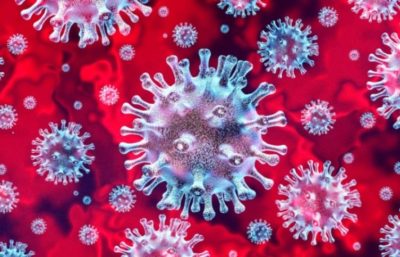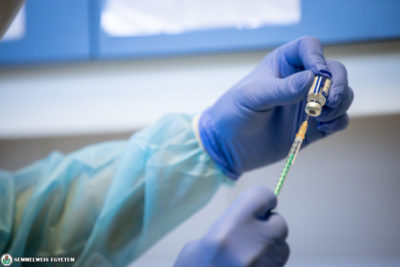Vitamin D and its deficiency may play a role in several diseases from skeletal problems to gynecological and obstetric diseases, and the coronavirus epidemic has put the issue of adequate vitamin D levels in focus. At the fourth national consensus conference organized by the Department of Internal Medicine and Oncology of Semmelweis University, all the professions concerned were represented, and a uniform recommendation could be prepared by the end of April.
 “The first Hungarian uniform recommendation on vitamin D was made ten years ago, and since then it is the fourth time the guidelines have been updated based on the new scientific findings”, said Dr. István Takács, the main organizer of the consensus conference on vitamin D, Head of the Department of Internal Medicine and Oncology.
“The first Hungarian uniform recommendation on vitamin D was made ten years ago, and since then it is the fourth time the guidelines have been updated based on the new scientific findings”, said Dr. István Takács, the main organizer of the consensus conference on vitamin D, Head of the Department of Internal Medicine and Oncology.
Due to the epidemic, six relevant professional organizations were represented at the online meeting: the Hungarian Society for Endocrinology and Metabolism, the Hungarian Society for Osteology and Osteoarthhrology dealing with diseases of the skeletal system, the Hungarian Society of Nephrology, the Hungarian Society of Clinical Oncology, the Hungarian Society of Laboratory Medicine, the Society of Gynecological Endocrinology and the Hungarian Menopause Society.
Based on the latest scientific findings, a new recommendation is expected to be prepared by the end of April, led by the department of Semmelweis University. This will include exactly how much vitamin D is recommended for a given patient, what counts as a normal level in their case, and how much deficiency can worsen the condition of the patient when vitamin D supplementation is needed.
As Dr. István Takács said, based on the latest scientific results, the role of vitamin D in bone diseases is becoming better known, and its effects on obstetrics and gynecology are becoming known as well.
“Today, it is known that fertility and fetal health are also affected by adequate levels of vitamin D, so pregnant women and those who are planning pregnancy need to pay more attention to this. In addition to taking prenatal vitamins, supplementary amount of vitamin D is recommended”, pointed out Dr. István Takács.
One of the other reasons for organizing another consensus conference was the increased attention towards the immune-boosting effect of vitamin D in connection with the coronavirus epidemic. At the same time, according to Dr. István Takács, many people started taking the vitamin in excessive amounts, in tens of thousands of units, which may be harmful.
Therefore, the recommended doses are also set in the context of COVID-19 in the framework of the professional recommendation. It is recommended to take a higher dose during the infection (4,000-6,000 IU daily for ten days) to help resolve any vitamin D deficiency, but it should not cause any side effects during this time.
In general, a level of 75 nm/l is acceptable as a normal range during laboratory testing. In the winter months, a daily intake of 2,000 units of vitamin D3 is recommended, which is sufficient to maintain a normal range.
In case of vitamin D deficiency and certain diseases, a higher amount may be required, this is the administration of a so-called loading dose, under medical supervision. A uniform recommendation has been made of the required doses for these conditions.
Pálma Dobozi
Photo (illustration): Attila Kovács – Semmelweis University
Translation: Katalin Illés-Romhányi


